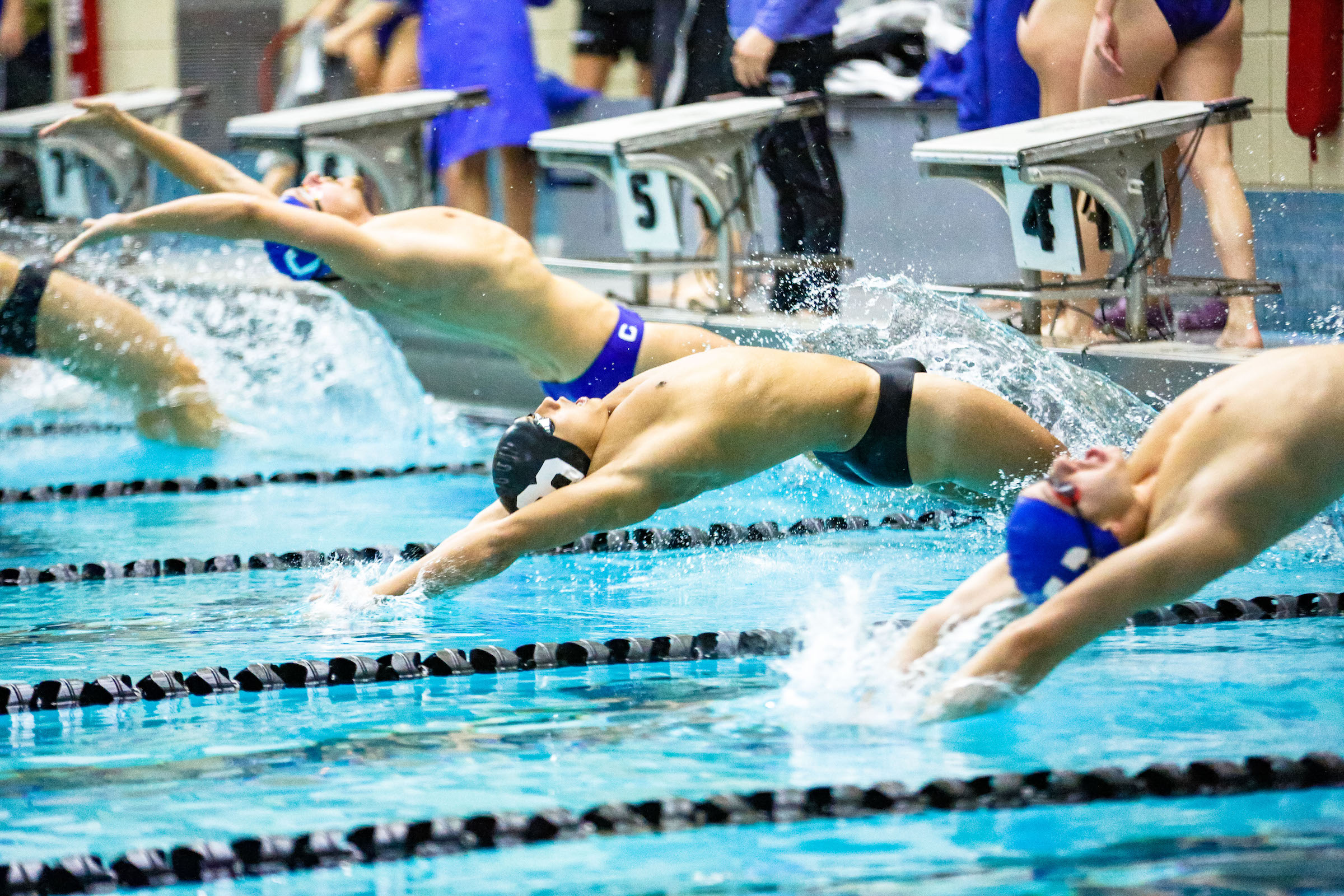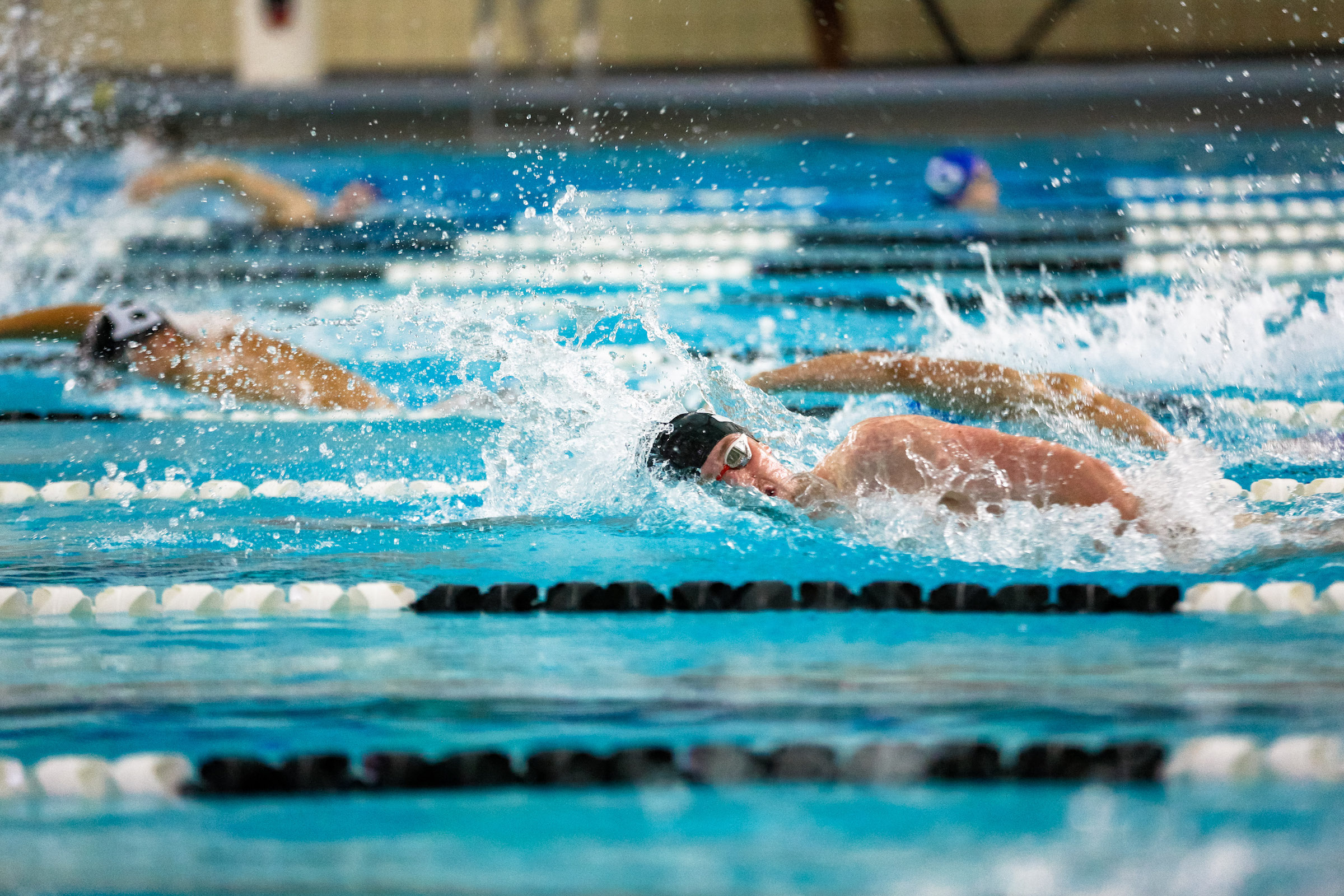Sophomore stars spark Bowdoin swim and dive squads
December 6, 2019
 COURTESY OF BRIAN BEARD
COURTESY OF BRIAN BEARD COURTESY OF BRIAN BEARD
COURTESY OF BRIAN BEARDThe men’s and women’s swim and dive teams opened their respective seasons with a joint meet against Worcester Polytechnic Institute (WPI) (Women 6-5, Men 3-6) and the Massachusetts Institute of Technology (MIT) (Women 4-1, Men 4-1) on November 23. Coming off of a disappointing seventh-place NESCAC finish last winter, the women’s team tallied an encouraging 220-78 win over WPI while falling to MIT 185-113. The men’s team, finished fourth at NESCAC championships earlier this year, but was swept by both opponents.
Despite a 1-3 aggregate performance, promising individual performances will give the Polar Bears hope for the remainder of the season. Sophomores Kate Fosburgh and Ted Mebust both took home NESCAC Swimmer of the Week honors.
After achieving moderate success in their respective 2018-2019 seasons, several key contributors graduated on both the men’s and women’s teams this past May. However, Bowdoin’s underclassmen were well-represented at NCAA DIII Championships last March, with a number of returning swimmers qualifying for finals at that meet.
“We graduated a few people who certainly contributed a ton during their career, and I think that they, as you hope for in a team, passed along work ethic and an example of how to improve throughout your career,” said Head Coach Brad Burnham.
Burnham continued, “We have a lot of kids this year, returning kids, who really got that [work ethic], and I think understand how [our team mentality] works.”
Discussing the improvements that swimmers make between their first and second years on the team, Burnham added, “First-years can go almost any direction, and then what we really love is when people build on their experiences and take … what they’ve learned [and are] … ready to do the right thing [when they hit] sophomore year.”
Both the men’s and women’s teams have a robust base of young talent to turn to. Mebust and Fosburgh, for example, have already demonstrated their ability to both build off of their first-year experiences and lead the 2019-2020 squad.
After a largely successful first year campaign that ended with an underwhelming performance at NESCAC championships, Fosburgh trained hard all offseason to refine her stroke technique. Fosburgh won the 200 freestyle race, placed second in the 100 freestyle race, and placed third in the 100 fly with a time of 59.02 seconds.
“I really focused on like changing some things in my technique … throughout the spring and summer, I was really working hard on changing some little things about my stroke that I had talked to [Burnham] about during the season,” said Fosburgh. “I’ve been working with [Burnham] a lot. And he’s so great at helping you with your goals.”
Mebust, on the other hand, compiled two separate top-three finishes and contributed to a medley relay team that placed third. He credits some of his early-season success to “much more technique-driven practicing,” also noting that he has benefitted from “starting off the season knowing what to expect, and training towards that.”
Looking ahead to the remainder of the season, Burnham noted the significance of small, incremental improvements.
“I always sort of talk about just improving one percent better than you were last year … one percent better for everybody on the team would be a massive improvement and a really great accomplishment,” Burnham said.
Both Mebust and Fosburgh believe that they still have room for improvement, and that they hope to further refine certain aspects of their technique.
“There are still so many things I can work on and improve on,” said Fosburgh. “Even just last week after this meet, we started focusing a lot on turns and that’s somewhere I can definitely improve … and that’s what I want … if I’m going to keep improving like this I just have to keep working on the little things.”
Although swim and dive may celebrate individual achievements, both Fosburgh and Mebust highlighted the importance of prioritizing team success over personal accolades. Mebust even commended swimmers’ ability to “be a part of something bigger than themselves.”
“Everybody wants the absolute best for their teammates because if you’re swimming well individually and your teammates are swimming well individually, that obviously means you’re going to swim better as a team,” Fosburgh said.

Comments
Before submitting a comment, please review our comment policy. Some key points from the policy: